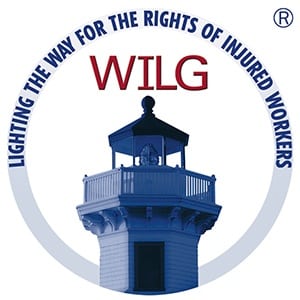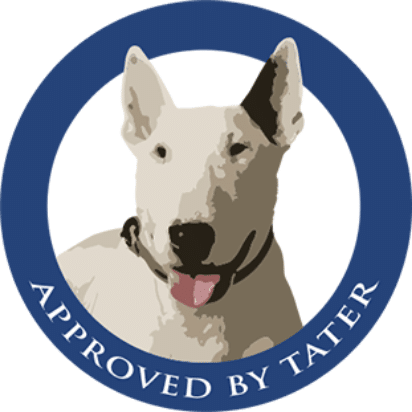Maritime & Oilfield Injuries
At Jack Bailey Law Corporation, we provide legal representation for individuals who have suffered maritime and oilfield injuries. Our experienced team of attorneys is dedicated to helping our clients navigate through the complex legal process and fight for their rights.
Maritime Injuries
Maritime work is known for its unique challenges and inherent risks, where accidents and injuries can have devastating consequences.
Whether you are a seaman, offshore worker, or a passenger on a vessel, our experienced team of maritime injury attorneys is here to provide you with exceptional legal representation and guide you through the complex process of seeking compensation for your injuries.
With our deep understanding of maritime laws and regulations, we are dedicated to fighting for your rights and ensuring that you receive the justice and compensation you deserve.

Protection Eligibility
Seamen injured aboard ship have three possible sources of compensation: the principle of maintenance and cure, the doctrine of unseaworthiness, and the Jones Act. Unfortunately, not every worker injured on board a vessel is a “seaman” entitled to these protections. To be considered a seaman, a worker must generally spend 30% or more of his working hours onboard either a specific vessel or a fleet of vessels under common ownership or control. Once we establish your status as a seaman and confirm your eligibility for the protections afforded by maritime laws, we will diligently pursue your accident claim.
Contact us today at 318-222-5200 or through our website to schedule your free consultation.
We have successfully helped numerous clients obtain the fair settlements they deserve, and we are here to do the same for you.
Multiple Layers of Protection
The Jones Act is a federal law that provides seamen with remedies against their employers for any offshore injuries that occurred while working on a vessel and were the result of negligence on the part of an employer or coworker.The Jones Act only applies to seamen who are in service on a ship. The Act holds employers liable for the negligence of employees for which the employer is responsible, including independent contractors.
The Longshore and Harbor Workers’ Compensation Act provides a type of workers’ compensation benefits for maritime workers who are injured on navigable waters. It covers many seamen who are not covered by the Jones Act but still are entitled to disability benefits. This Act provides medical and disability benefits, as well as rehabilitation services for injuries that were sustained on the job.
Under the principle of maintenance and cure, ship owners are obligated to cover the medical expenses of an injured seafarer until they reach maximum medical recovery (MMR). Additionally, the ship owner must provide basic living expenses for the seafarer until the completion of the voyage, even if the seafarer is no longer on board. This entitlement to maintenance and cure is a guaranteed right for the seafarer, except in cases where the injury resulted from their own willful gross negligence. This principle bears similarities to workers’ compensation.
The doctrine of unseaworthiness holds ship owners accountable if a seafarer sustains an injury due to a defect in the ship or any of its equipment, rendering it “unseaworthy.” This legal doctrine places liability on the ship owner for such injuries. On the other hand, the Jones Act enables a seafarer, or someone with a close relationship to the seafarer, to file a lawsuit against the ship owner for personal injury or wrongful death. The case will be decided by a jury. The Jones Act incorporates the Federal Employers Liability Act (FELA), holding a ship owner liable to its employees for injuries due to employer negligence. The statute of limitations for filing such claims is three years.
Oilfield Injuries
Working in the oilfield industry presents numerous risks, and unfortunately, accidents resulting in injuries are all too common.Oilfield workers suffer injuries on the job at a high rate and these injuries can result in serious conditions and long term disabilities. Many of the accidents on oil fields and drilling rigs are the result of negligence, improper training, defective equipment, or insufficient safety features.
If you have suffered an oilfield injury, it is crucial to seek legal representation from a skilled offshore accident lawyer who specializes in handling these complex cases. Whatever the cause of the injuries, it is important for oil field accident victims to obtain the compensation that they need for their medical expenses, lost wages, and pain and suffering with the assistance of a dedicated oilfield accident attorney.
Equipment Malfunctions
Defective or poorly maintained equipment can lead to severe injuries, including burns, crush injuries, or traumatic amputations.
Toxic Exposure
Workers may suffer from illnesses or injuries due to exposure to toxic substances like chemicals, fumes, or asbestos in the oilfield.
Explosions and Fires
Accidents involving explosions and fires can occur on drilling rigs, oil refineries, or during transportation, causing catastrophic injuries and fatalities.
Falls from Heights
Working at elevated heights on oil rigs or platforms increases the risk of falls, which can result in severe head, back, or spinal cord injuries.
Transportation Accidents
Injuries can occur during transportation to and from oilfield sites, including truck accidents, helicopter crashes, or maritime incidents.
Contact The Jack Pack
Don’t hesitate to reach out to the dedicated legal team at Jack Bailey Law Corporation. Our compassionate and experienced attorneys are ready to provide you with the support and representation you need during this challenging time.
By contacting us, you can take the first step towards seeking justice and obtaining the compensation you deserve. We offer a free consultation to discuss the details of your case, evaluate your legal options, and provide you with personalized guidance. Remember, time is of the essence when it comes to filing a claim, so don’t delay in seeking legal assistance.








